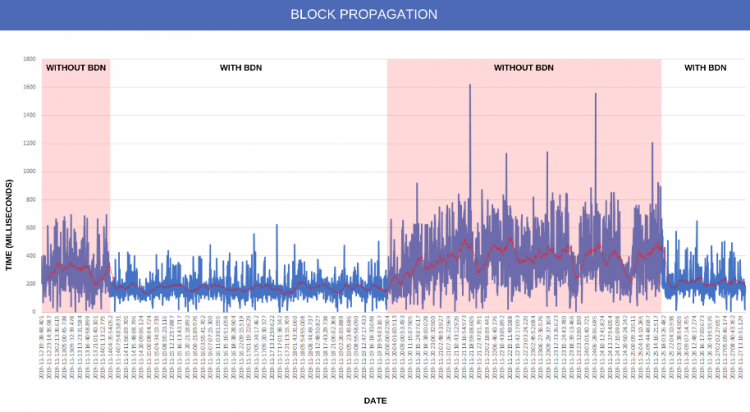bloXroute Labs, creators of a blockchain scaling solution through its Blockchain Distribution Network (BDN), announced today the results of three-week-long testing done by Akomba Labs showing they can significantly improve block propagation performance.
The collaboration with Akomba Labs, a blockchain technology research and advisory firm, measured the effect of using the BDN on transactions and block propagation on the Ethereum network.
Testing was organized by Virgil Griffith of the Ethereum Foundation and measured the propagation of Ethereum blocks with and without the BDN from a major mining pool in China to a node managed by Akomba in Singapore.
The results showed that, on average, the propagation time without the BDN was 360ms (1598 blocks) and with the BDN it was 172ms (1690 blocks). This means the BDN improved propagation speed by more than 50%. During testing, actual propagation data was collected from roughly 2,015 blocks.

“We spent the last few months focusing on improving propagation out of mainland China. With so many mining pools, exchanges, DApps, and other Ethereum users based in Asia, it was a major goal of ours us to improve the blockchain networking infrastructure in these geographies. We were pleased to be able to deliver such promising results while further testing the BDN’s robustness and new network features. It is also important to emphasize that we expect to see even more improvements with a larger gas limit and larger blocks on Ethereum as bloXroute allows Ethereum miner pools to increase the gas limit and generate larger blocks without slowing down propagation and increasing the uncle rate.”
– Eyal Markovich, COO, bloXroute Labs






















